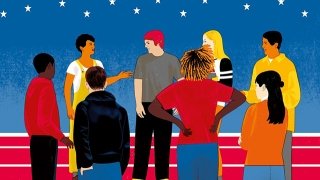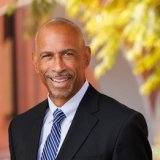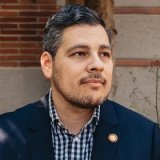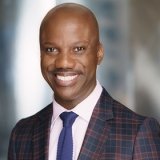In advance of the historic presidential candidate debate on Sept. 10, USC Rossier faculty offered their questions, shared why the question is important and what the candidate’s response may illuminate about their higher ed policy positions and values.
Pedro Noguera
Dean, USC Rossier School of Education
Recently, higher education has been the subject of scathing criticisms from politicians and some pundits. If you were in a position to institute reforms what changes would you make? How important to you is it to make college affordable and accessible to American students? What do you think should be done to address rising costs that have put college out of reach for many?
Questions about college reform and affordability are important because they directly impact the accessibility of higher education for millions of Americans. How a candidate responds to these questions can reveal their priorities, values and policies regarding education and social mobility. A candidate who demonstrates a strong understanding of students’ challenges and proposes concrete solutions to make college more affordable and accessible will show that they are committed to creating opportunities for all individuals to pursue higher education and achieve their goals. Their response will also demonstrate their ability to address complex issues and think critically about policy solutions.
Stephen Aguilar
Co-lead, USC Center for Generative AI and Society’s
What, if any, regulations should be imposed on companies that develop generative AI for educational applications?
Gen AI is nearing ubiquity, and educators are attempting to sort how to best use it—if at all. Guidance from the Department of Education has helped, as has work from centers like USC's own Center for Generative AI and Society. However, we have also seen expensive failures from large districts and startups making promises they can’t keep. This suggests that in the early stages we might consider regulations to reign in ambitions to ensure that we minimize harm on students—be it from bias in the data that generative AI relies on, or from companies that over promise capabilities in order to maximize their profits.
Shaun Harper
Founder and Executive Director, USC Race and Equity Center
What will your administration do to end the gun violence that claims too many innocent lives in K–12 schools and on college campuses across our country? And what stopped you from doing this during your previous terms in the White House?
America leads the world in gun violence and shooting fatalities on campuses. Both executive and congressional action are long overdue. Arming teachers with guns is not the answer. The next U.S. President has a serious, urgent opportunity to protect our nation’s students and educators. At this point, inaction is complicity.
Corinne Hyde
Professor of Clinical Education
As President, how would you navigate the challenges and opportunities in higher education arising from the growing availability and advanced capabilities of generative artificial intelligence (GAI)?
I would ask this question of our presidential candidates because the rapid rise of generative artificial intelligence (GAI) is a significant disruption to higher education. Candidates’ responses would reveal their understanding of both this disruption and the advanced technologies driving it, while also reflecting their broader attitudes toward technological innovation and the future of higher education. This question offers an opportunity for candidates to outline their vision and priorities for integrating AI into educational frameworks, as well as their approach to balancing innovation with safety and ethical considerations. Ultimately, their answers could provide valuable insights into their capacity to engage with complex, nuanced and technically challenging issues in a public forum.
Morgan Polikoff
Co-Faculty Director, USC EdPolicy Hub
As you know, college campuses were roiled with protests about the Israeli-Hamas conflict in the spring. These are just the latest skirmishes over the issue of free speech on college campuses. What role, if any, should the federal government play in ensuring students’ rights to free speech and, if appropriate, balancing free speech rights against students’ rights to a college campus free from violence, bullying and harassment?
This is the most hot-button issue in higher education right now, and I wouldn’t be surprised if there was a question like this. I intended to frame this question about the role of the federal government, not about whether colleges handled the spring protests well, because this is really the question—what is the federal government’s purview on this issue? Should the federal government be enforcing free speech rights on campus and if so, how? How should those efforts be balanced against students’ stated fears and concerns? It’s hard to boil this down to a single question, though!
Gale Sinatra
Distinguished Professor
How can we promote science literacy for all students, not just those seeking careers in STEM?
Today’s world is complex and we have many challenges including climate change, food shortages, extreme weather events, global pandemics and vaccine hesitancy. Many of these challenges will become more severe as today’s school children become tomorrow’s problem solvers in government, business, education and other fields. Based on our research, we know that most Americans lack the basic scientific literacy needed to confront these challenges. Science education has not kept up with the demands of our time. We need a forward looking set of education policies to address this crisis.









